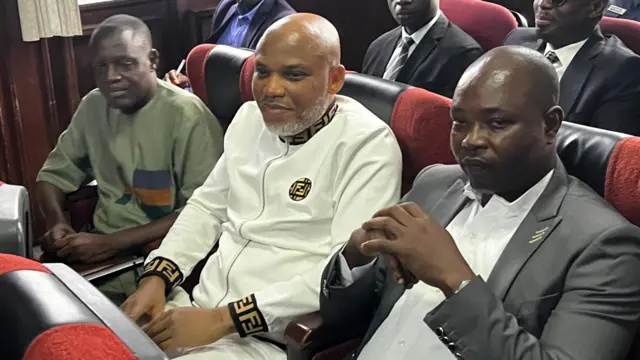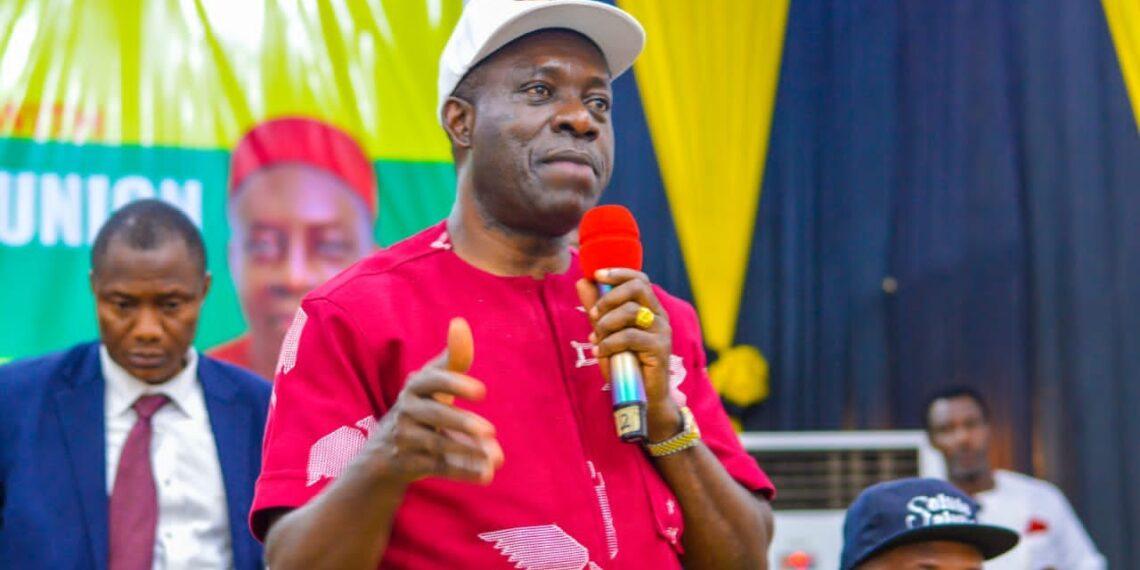
The long-running trial of Nnamdi Kanu, leader of the Indigenous People of Biafra (IPOB), resumed Friday at the Federal High Court in Abuja with the cross-examination of the prosecution’s first witness (PW1), an officer from the Department of State Services (DSS) identified only as AAA.
Appearing behind a screen, in accordance with the court’s earlier ruling to protect government witnesses, AAA testified that during his role in Kanu’s arrest and transfer to Abuja, no items linked to terrorism were found on the defendant.
He also admitted that none of the items seized—including a mobile phone—were analyzed in a way relevant to the current charges, stating they were deemed “immaterial.”
Under questioning by lead defense counsel Kanu Agabi (SAN), AAA confirmed there were no weapons, incriminating materials, or evidence of violent activity linked directly to Kanu or the woman arrested with him. He also acknowledged that, despite years of surveillance, there was no record of Kanu directly inciting or coordinating violence, nor were any of his alleged supporters known to have acted violently at his behest.
Challenged on whether other individuals are standing trial for Biafra-related terrorism, AAA said he was unaware of the status of prior co-defendants, though he had seen media reports linking figures like Simon Ekpa to continued agitation. He added that efforts were underway to extradite Ekpa to Nigeria.
In a striking admission, the witness conceded that Kanu had described Nigeria as a “zoo,” but could not recall the defendant inciting separatist violence or denying national issues like corruption and unemployment. He also acknowledged that the widespread killings across Kaduna, Benue, Zamfara, and other regions were not related to any separatist campaign.
Originally filed in 2015, Kanu’s case—centered on terrorism and treasonable felony charges—has been plagued by delays, including his escape from Nigeria in 2017 and re-arrest in Kenya in 2021. Although Kanu initially faced trial alongside four co-defendants, the case was split in 2018, with his proceedings postponed until his return.
Friday’s testimony marks a rare opportunity for the defense to challenge the government’s claims head-on. With no direct evidence of terrorism presented so far, the trial’s outcome may hinge on broader questions about free speech, state overreach, and Nigeria’s handling of separatist movements.





